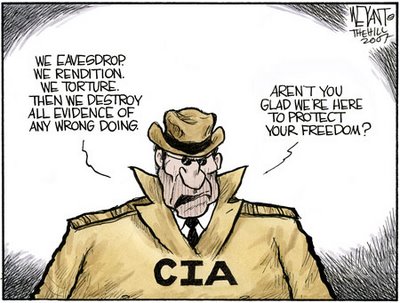John D. Rockefeller & Alcohol Prohibition
 Filed Under : America, capitalism, conspiracy, energy, environment, fraud, money, oligarchy, propaganda, scam, technology, war by vemrion
Filed Under : America, capitalism, conspiracy, energy, environment, fraud, money, oligarchy, propaganda, scam, technology, war by vemrion Jan.10,2008
Jan.10,2008I like to learn a thing or two every day, and today I learned a very interesting thing indeed.
Many people know that alcohol can be used as fuel for cars and farm equipment. It’s popular today in the guise of ethanol, but ethanol is largely a red herring. Ethanol is a ghost of what could have been had the Prohibition movement not killed alcohol fuel in its infancy.
Most people are not aware that Henry Ford’s Model T came in a variation that allowed the driver to switch the carburetor to run the engine on farm-made ethyl acohol [sic]. This allowed the operator to stop at local farms (equipped with stills) to refuel his/her car during long trips through the backcountry. After all- the gas station wasn’t exactly as ubiquitous in those days, as it is now. The Standard Oil Company and its industrialist-founder John D. Rockefeller wasn’t too happy with this arrangement. After all, Rockefeller’s company had a virtual monoploly on gasoline at this time in our nation’s development.
It kind of makes me wonder why we’re fighting an illegal war over oil in the desert, thousands of miles away, when we could probably retrofit our cars to run on domestically produced alcohol fuels (which does not have to be corn-based like ethanol).
Like William Randolph Hearst’s campaign against cannabis (marijuana), Rockefeller’s campaign against alcohol was ultimately successful… for him. Hearst and Rockefeller’s respective campaigns were horrible crimes perpetrated against America, the environment and truth, but both men were personally enriched through their scheming.
Since the late 1800’s there had been a growing Alcohol Temperance Movement developing among reformers. Rockefeller saw an opportunity in this. It is well-documented that local efforts to curb alcohol consumption were expanded to the national level when high-profile figures like Rockefeller joined in the anti-alcohol efforts. Was he so concerned with the social problems that abuse of alcohol was said to cause?
No… John D. Rockefeller was not concerned with family dynamics in the working classes. But he was influential in changing the goals of the movement from temperance to prohibition. As we know, his contribution to the outlawing of the production and sale of alcohol was successful. Of course, Rockefeller and the oil companies reaped tremendous profits as a result. Remember that the period covered by the 18th Amendment (1919-1933) coincided with the huge rise in the sale and operation of automobiles. America was on the move, and all of these cars were now operated solely on gasoline. By the time that the 21st Amendment was passed, ending the prohibition of alcohol, the standard was already set and worked completely in the favor of the Rockefeller family.
While this is an excellent example of a conspiracy against the American people that is both provable and successful, there is one problem with calling it a conspiracy: Conspiracies require illegal acts, and lying to the American people is not necessarily illegal. Unethical, yes, but unless you were personally slandered there’s no chance of legal recourse against such conspiratorial campaigns.
In the end, this is an example of how rich men can ride roughshod over the Constitution and the democratic process and there’s not a damn thing anybody can do about it.
 This post currently has
28 screeches.
This post currently has
28 screeches. Tags :
Tags : 




